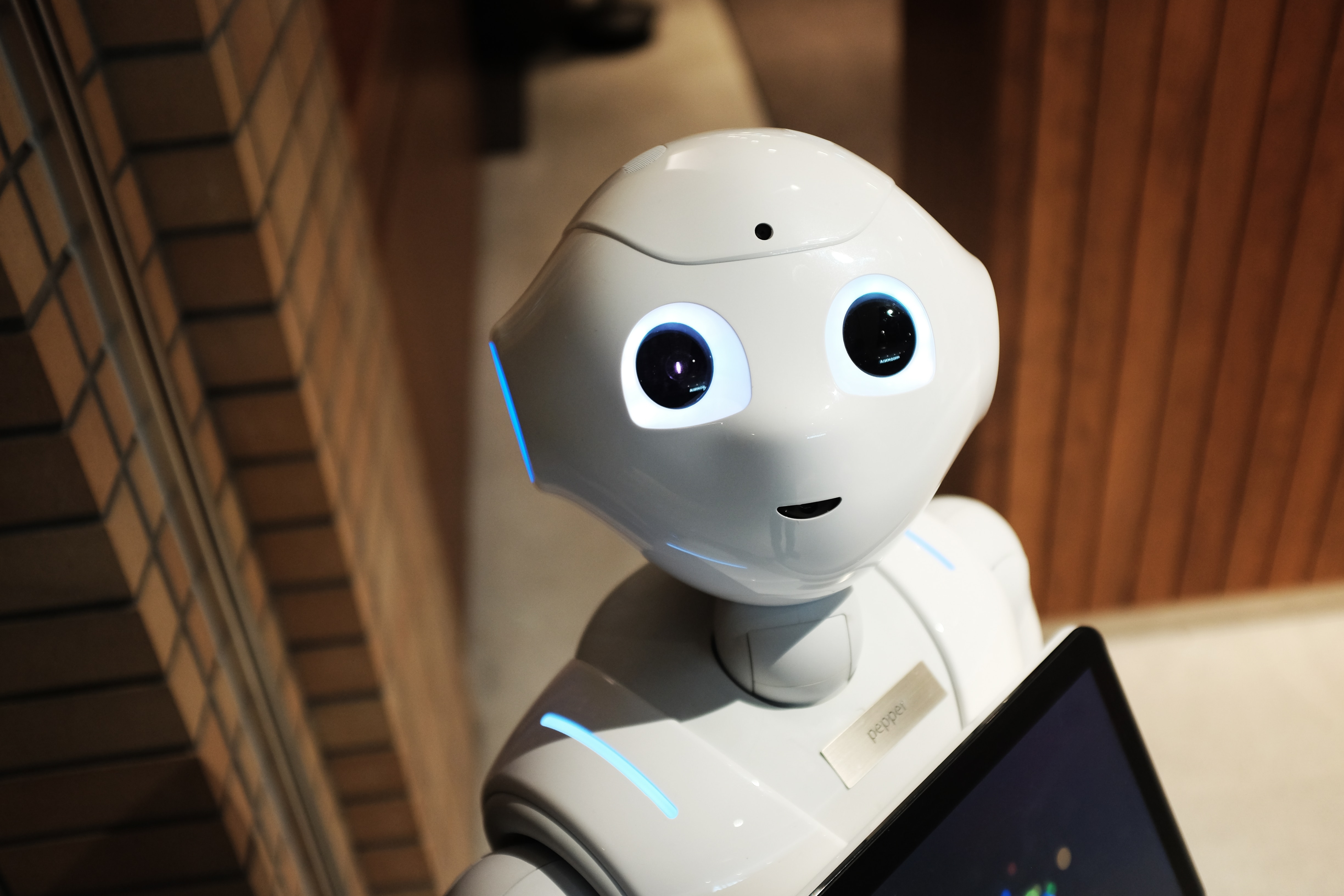
How AI Can Work For You
Remember watching Iron Man and marvelling at how Tony Stark used to talk to his trusty AI assistant, J.A.R.V.I.S.? Wasn’t it cool to watch him simply say what he wanted and just like magic it happened? (Not sure if you know this but he also never refilled his fridge.)
Today, when we look at our smartphones we all have some sort of trusty assistant who we can talk to and ask about the weather or the latest sports scores.
What if we could do more than that? What if we took our AI friend to work and asked them to make our work easier without stealing our jobs? Sounds amazing, right?
Artificial Intelligence (AI) is no longer a concept restricted to sci-fi movies or high-tech laboratories. It’s here, incorporated into our everyday lives, significantly altering the way we work. From automating routine tasks to predicting industry trends, AI is making work easier, enhancing efficiency, and streamlining operations across numerous sectors.
Automating Routine Tasks
Do you have a set of things that you need to do regularly? Tasks that, while done today, will be waiting for you again tomorrow, or next week, or next month?
AI excels at automating routine, repetitive tasks, thereby freeing up human time for more strategic, creative endeavors. This feature not only enhances productivity but also minimizes the risk of human error. For instance, AI-powered tools like UiPath and Automation Anywhere can automate data entry, file transfer, and email responses, thereby reducing manual efforts and boosting efficiency.
Enhancing Decision Making
Do you want to make an informed decision from the data you have but have no idea where to start?
Guess what? Some AI algorithms are capable of analyzing vast volumes of data to identify patterns and trends, and have become an essential part of decision-making processes. Predictive analytics tools like DataRobot and RapidMiner help businesses forecast sales, understand customer behavior, and predict stock market trends, thereby allowing more informed, data-driven decisions.
Improving Communication
Do you have an online platform and constantly worry if your users will get the assistance they need while navigating through it?
With AI-powered chatbots, online platforms are able to provide 24/7 customer support, answering queries, resolving complaints, and even processing orders, thereby improving customer satisfaction. Furthermore, natural language processing tools like Google Translate help bridge language barriers in global teams, fostering better collaboration.
HR and Recruitment
Do you want to quickly build your team without spending too much time manually reviewing every resumé? And what if you miss something during the interview?
Well, AI is streamlining the recruitment process. Platforms like HireVue use AI to assess a candidate’s fit, analyzing video interviews for cues in facial expressions, language, and tone. AI tools also automate candidate sourcing and interview scheduling, significantly reducing the time to hire.
Sales and Marketing
You really love that product that you worked hard on. But how do you know if your users will like it? And how do you know what they might be interested in next?
AI has brought about a sea change in sales and marketing. Predictive algorithms analyze consumer behavior and past purchase history, making it easier to predict future buying patterns and personalize customer interactions. AI-powered marketing tools like HubSpot and Marketo help businesses tailor their marketing strategies, improve lead scoring, and enhance customer experience.
Project Management
Okay, you have your team, you know what you need to do. How do you share this vision with your team in a way that they know what is going on and what needs to be done?
AI has found a significant place in project management. AI-powered tools like ClickUp and Trello can automate task assignments, predict project risks, and estimate project timelines based on historical data. These capabilities lead to efficient project management and improved project outcomes.
Healthcare
Do you remember that one patient? The one whose diagnosis took forever? Have you heard about the results of the latest study of your favorite/dreaded disease? (Is this a thing?)
AI has got you covered. AI-powered tools like IBM Watson Health assist in diagnosing diseases, predicting patient risk, and staying on top of the latest medical research. By doing so, they aid healthcare professionals in providing more accurate and personalized care.
Education and Training
Do you have those nicely written notes on today’s lesson ready? Do you wish you could write them in a way that speaks to each one of your students in an easy-to-understand way?
AI is revolutionizing education and training. Platforms like Knewton personalize learning materials according to a learner’s strengths and weaknesses. AI also automates grading and administrative tasks, freeing educators to focus more on teaching and less on paperwork.
Agriculture
I wonder how my maize crops are doing. Should I plant this month or next? When are the rains coming?
AI can help you answer these question without scratching your head too much. AI helps predict weather patterns, monitor crop health, and automate irrigation, making farming more efficient and sustainable. Tools like FarmBot and Blue River Technology provide farmers with critical insights into crop health and weather patterns, ensuring efficient use of resources.
Manufacturing
Do you wonder how you can squeeze just one more product out of the pipeline before closing for the day? Wouldn’t it be nice if that machine gave you a heads-up before breaking down for a few days? (So rude, yeah?)
AI in manufacturing predicts equipment failures before they occur and optimizes supply chain logistics, leading to more efficient manufacturing processes. Platforms like Siemens’ Mindsphere use AI to monitor equipment health and predict failures, minimizing downtime and maintenance costs.
Despite these amazing advancements, it’s essential to consider potential challenges such as job displacement due to automation and privacy concerns with data handling. The key is to strike a balance, leveraging AI to our advantage while proactively addressing potential drawbacks.
Let’s talk more on these drawbacks some other time okay?
Until next time, stay positive.
